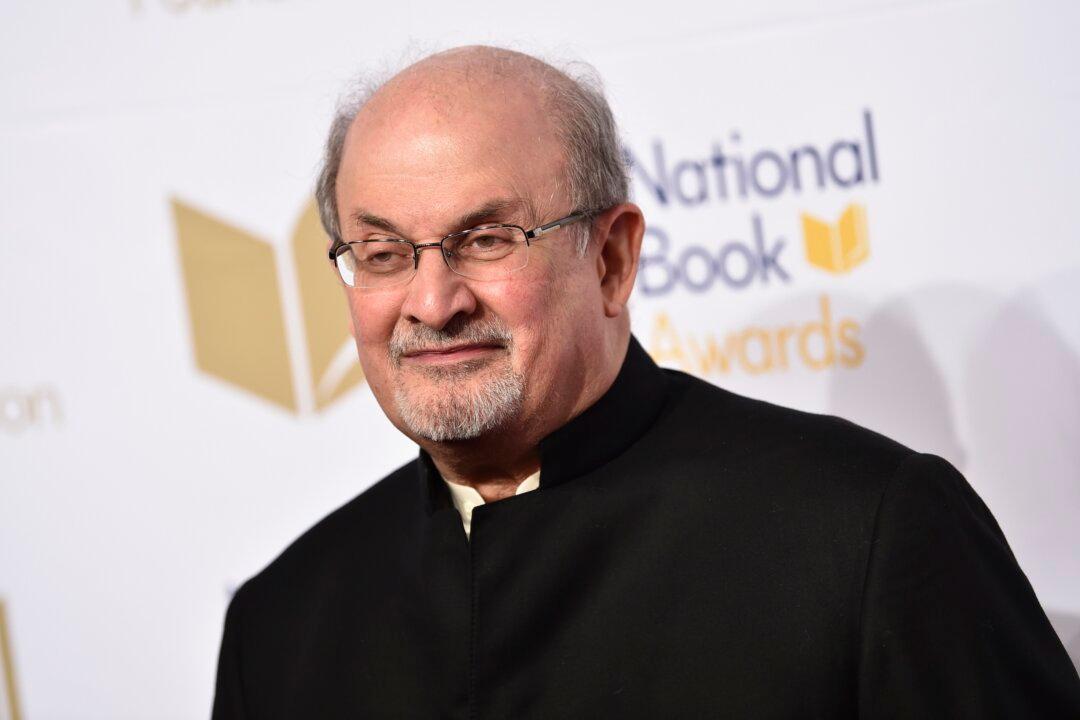Salman Rushdie, a British-American author and longtime critic of Islam, has lost sight in one eye and movement in one hand as a result of a violent attack against him in western New York two months ago.
In an interview with Spanish newspaper El Pais, Andrew Wylie, a book agent for Rushdie, gave an update on the 75-year-old novelist’s recovery from the Aug. 12 knife attack at a literacy event. State police reported at that time that Rushdie was stabbed at least once in the neck and at least once in the abdomen.





